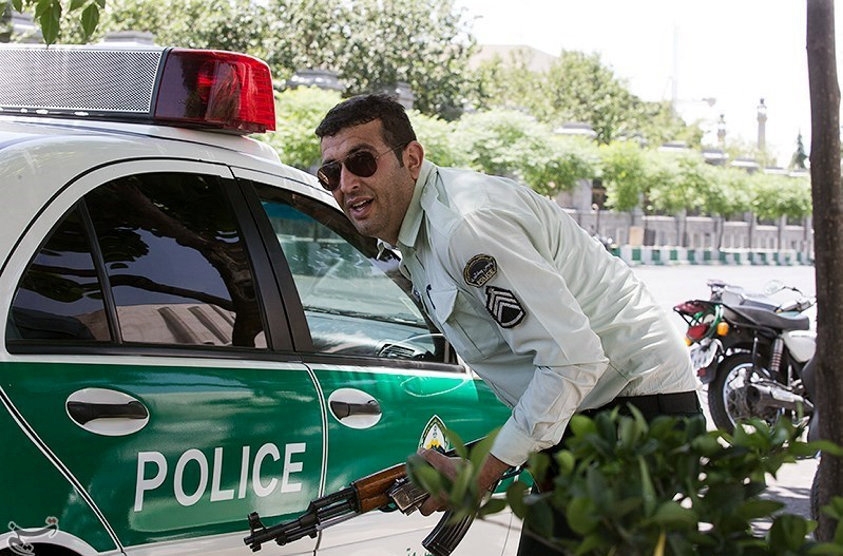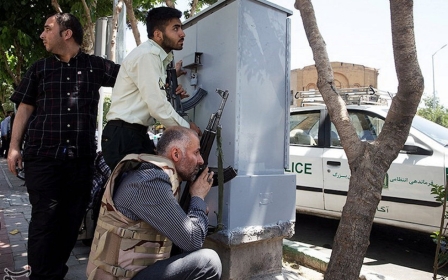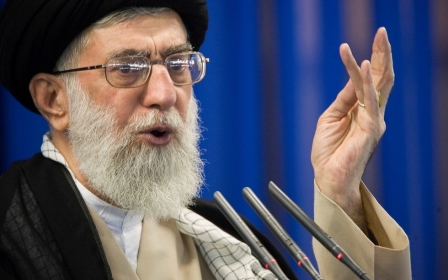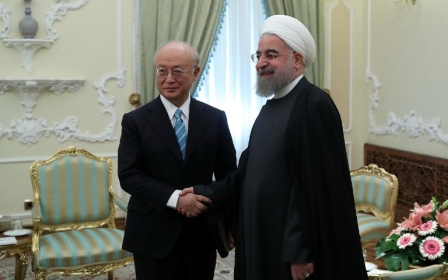Islamic State attack in Tehran: Why is Saudi Arabia the prime suspect?

The highly anticipated terrorist attack by the Islamic State (IS) group in Tehran finally took place on 7 June, leaving at least 13 dead and more than 40 wounded. Iran has been one of the main Middle East states at the forefront of the international campaign against IS, but had gone unscathed until now.
The fact that IS had not managed to strike targets inside Iran fuelled suspicions that Tehran might be collaborating surreptitiously with the terrorist group, as it had forged ties and arrangements with a number of al-Qaeda leaders and operatives in the past.
In the starkest statement representing such qualms, US Defence Secretary James Mattis pointed out in an April 2016 speech that “Iran is not an enemy of ISIS; they have a lot to gain from the turmoil that ISIS creates.
“I would just point out one question for you to look into,” he added. “What is the one country in the Middle East that has not been attacked by ISIS? One. That is Iran. That is more than happenstance, I’m sure.”
Now, with a deadly IS assault on two highly symbolic targets in Tehran - the parliament building and the mausoleum of late Ayatollah Khomeini - the equation has changed. The incident has shattered Iran’s image as an oasis of security and stability in the most insecure and unstable region of the world, but it has also left many wondering why it transpired now and, equally significantly, how IS managed to bypass Iran’s hardened security and intelligence apparatus.
Taking the battle to Iranian territory
The timing of the attack is too suggestive to simply brush it off as a matter of contingency or coincidence.
It came less than a day after Saudi Foreign Minister Adel al-Jubeir stressed in a speech in Paris that Tehran must be punished for its interference in the region and support for terrorist entities such as al-Qaeda.
More resounding, however, were the provocative remarks of the Saudi deputy crown prince and defence minister, Mohammed bin Salman, during an interview with MBC television in early May 2017, where he spoke for the first time of Saudi efforts to take the fight inside Iranian territory.
He said: “We know that the aim of the Iranian regime is to reach the focal point of Muslims (Mecca) and we will not wait until the fight is inside Saudi Arabia and we will work so that the battle is on their side, inside Iran, not in Saudi Arabia." The words prompted Iranian Defence Minister Hossein Dehqan to warn Saudis against doing “anything ignorant”, otherwise Tehran’s military response would “leave nowhere [in the kingdom] untouched except for Mecca and Medina”.
It is also noteworthy that militant activities by separatist or extremist groups - some of which stand accused of receiving financial and military assistance from Riyadh - have recently soared around Iran’s border areas.
On 27 May, the Kurdistan Free Life Party (PJAK) - a Kurdish armed group in Iran affiliated with the outlawed Kurdistan Workers' Party (PKK) in Turkey - reportedly killed two border guards and wounded seven others in clashes near the Iranian northwestern city of Urmia. In a similar incident on 26 April, 10 Iranian border guards were fatally targeted by the Sunni militant group Jaish al-Adl (Army of Justice) in a cross-border attack in Iran’s southeastern Sistan-Baluchestan province, on the frontier with Pakistan.
Against such a backdrop, it is little wonder the Iranian Revolutionary Guards (IRGC) pointed the finger of blame at the Saudi regime in a statement condemning the Tehran terror attack. The IRGC statement also described US President Donald Trump’s official visit to Saudi Arabia as “very significant” in that context, vowing revenge against the perpetrators of the assault and their backers.
The vicious cycle of escalation
Evidently, Trump’s Middle East trip has hardly helped stabilise the regional imbroglio. Emboldened by Washington’s hawkish policy towards Iran and its reinvigorated ties with the US - including a historic arms deal worth over $100bn - Saudi Arabia embarked on a diplomatic and trade boycott against Qatar shortly after the visit, cutting all ties with the small Persian Gulf sheikhdom in conjunction with six other allies. The Saudi-led bloc also suspended all air, land and sea travel to and from Qatar, in an unprecedented move to punish Doha for its alleged support for terrorism, including its fairly close relations with Tehran.
While the Qatar crisis suggested a heightened level of tensions between arch rivals Iran and Saudi Arabia, the 7 June IS attack in Tehran has the potential to initiate a new cycle of escalation with enormous unintended consequences for both sides as well as for the conflict zones where they are involved. This obviously does not bode well for the Syria peace talks, the Yemen civil war or the campaign against IS in Iraq and the wider region.
Unless Saudi rulers drop escalatory policies and decide to give diplomacy a chance, it is unlikely the Middle East will witness stability, let alone security and peace.
- Maysam Behravesh is a PhD Candidate in the Department of Political Science and a Research Fellow in the Center for Middle Eastern Studies (CMES), Lund University. He was a senior editor of the Wiley-published journal Asian Politics & Policy and editorial assistant of the Sage-published quarterly Cooperation and Conflict. Maysam is also a regular contributor to Persian-language media outlets, including BBC Persian.
The views expressed in this article belong to the author and do not necessarily reflect the editorial policy of Middle East Eye.
Photo: An Iranian policeman takes cover during an attack on the Iranian parliament in central Tehran, Iran, June 7, 2017
New MEE newsletter: Jerusalem Dispatch
Sign up to get the latest insights and analysis on Israel-Palestine, alongside Turkey Unpacked and other MEE newsletters
Middle East Eye delivers independent and unrivalled coverage and analysis of the Middle East, North Africa and beyond. To learn more about republishing this content and the associated fees, please fill out this form. More about MEE can be found here.





